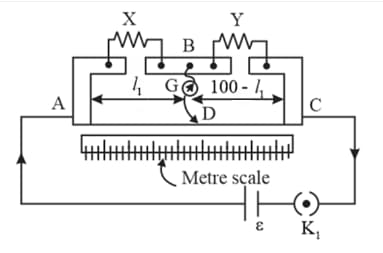Potentiometer
Important Questions on Potentiometer
A potentiometer circuit for comparison of two resistances is shown below. The balance point with a standard resistor is found to be , while that with the unknown resistance is . Determine the value of . What might you do if you failed to find a balance point with the given cell of emf .
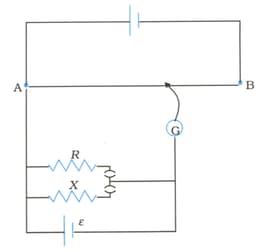
A potentiometer wire is long and a potential difference of is maintained between its ends. Find the emf (in ) of a cell which balances against a length of of the potentiometer wire.
State the working principle of potentiometer, explain with the help of circuit diagram how the potentiometer is used to determine the internal resistance of the given primary cell.
State the working principle of potentiometer, explain with the help of circuit diagram how the emf of two primary cells are compared by using the potentiometer.
Draw a circuit diagram showing how a potentiometer may be used to find internal resistance of a cell and establish a formula for it.
In a meter bridge shown in the figure, the balance point is found to be at from the end A when the resistor X is of and Y is of
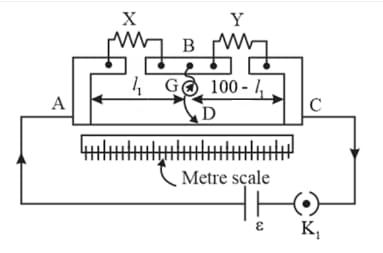
Determine the balance point of the bridge above, if X and Y get interchanged.
The figure shows a potentiometer with a cell of and internal resistance maintaining a potential drop across the resistor wire A standard cell which maintains a constant emf of (for very moderate currents up to a few ) gives a balance point at length of the wire. To ensure very low currents drawn from the standard cell, very high resistance of is put in series with it, which is shorted close to the balance point. The standard cell is then replaced by a cell of unknown emf , and the balance point found similarly, turns out to be at length of the wire.
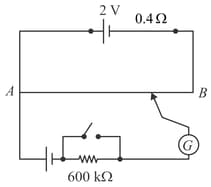
(a) What is the value ?
(b) What purpose does the high resistance of have?
(c) Is the balance point affected by this high resistance?
(d) Would the method work in the above situation if the driver cell of the potentiometer had an emf of instead of ?
(e) Would the circuit work well for determining an extremely small emf, say of the order of a few (such as the typical emf of a thermocouple)? If not, how will you modify the circuit?
In a potentiometer arrangement, a cell of emf gives a balance point at length of the wire. If the cell is replaced by another cell and the balance point shifts to , what is the emf of the second cell?
In a meter bridge shown in the figure, the balance point is found to be at from the end when the resistor is of and is of . 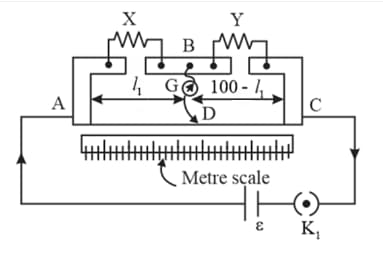
What happens if the galvanometer and cell are interchanged at the balance point of the bridge? Would the galvanometer show any current?
In a meter bridge shown in the figure, the balance point is found to be at from the end when the resistor is of . Determine the resistance of . Why are the connections between resistors in a Wheatstone or meter bridge made of thick copper strips?
